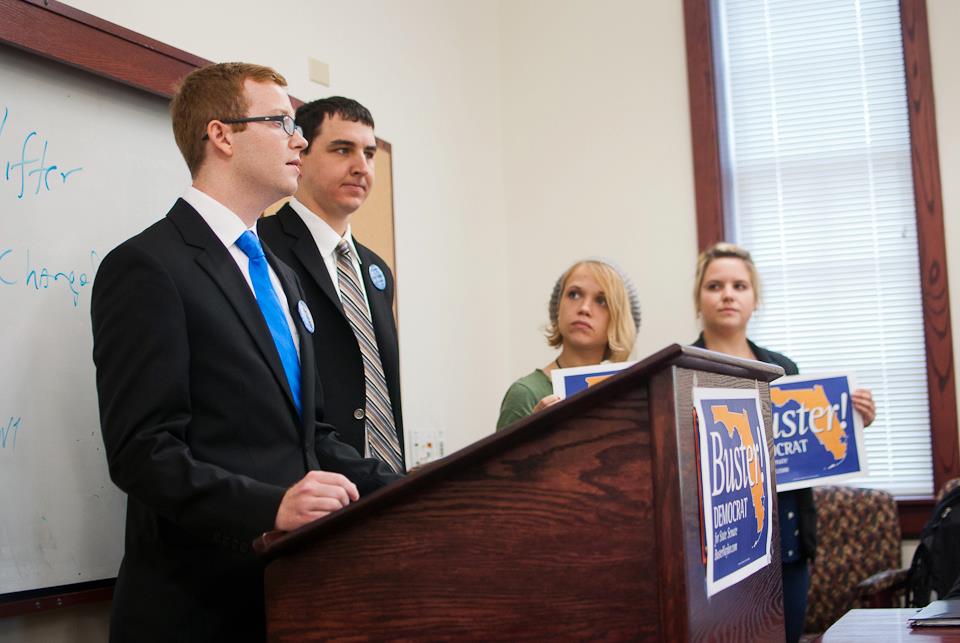The program, which will normally require two years for completion, consists of 12 courses (36 semester hours) offered primarily by the Department of Political Science. Three additional hours must be earned through an approved internship with a public or private agency or an election campaign, and students also must defend a capstone project related to political campaigning. There is no language requirement or thesis. Those who successfully complete the program will receive an M.A. in Political Science, with a certificate attesting to their specialization in the field of Political Campaigning.
Download the Degree Progress Worksheet (docx) here.
MA Core Courses (6 hours)

- POS6736 Conduct of Inquiry
- POS6737 Data Analysis
Political Campaigning Required Courses (12 hours)
- POS6207 Political Behavior
- POS6274 Political Campaigning
- POS6278 Advanced Campaign Strategy
- POS6757 Survey Research
Political Internship (3 hours)
- PAD6946 Internship
Select one of these courses (3 hours)
- POS 6455 Political Parties
- POS 6933 Interest Groups
Electives (15 hours)
Suggested electives include

- POS6933 Election Data Science
- POS6272 Political Participation
- POS6045 American Politics
- POS6279 Politics of Direct Democracy
- MMC6618/POS 6933 Political Communication
- POS6127 State Government and Politics
Other optional electives include
- POS6933 Political Socialization and Psychology
- POS6427 Legislative Politics
- POS6933 Campaign Finance
- POS6933 American Political Development
- PUP6314 Race, Gender, and Politics
- PUP6009 Public Policy Analysis
- PAD6434 Leadership and Ethics
- CPO Comparative Parties and Elections
- PUR5507 Persuasion Theory and Practice
- FYC6424 Fundraising for Community Nonprofit Organizations
- FYC6421 Non-Profit Organizations
Other electives may be approved by the Program Director. Students in the JD/MA combined program will use approved courses in Law as electives.
Capstone project
The capstone project allows students to use theoretical and applied knowledge gained in the program to write a professional document using a hypothetical or real political scenario. Students choose which of the four types of plans noted below; the student’s supervisory committee will provide the basic parameters of the scenario.
Each student will write and defend either a
- (a) a campaign plan for a candidate in a challenging race,
- (b) a lobbying plan for a client trying to enact or defeat policy change,
- (c) a polling plan for a client who needs to monitor public opinion change over a period of time, or
- (d) a media plan for a public relations campaign.
In addition to outlining the plan, the final project must cite and explain the academic literature that is related to the strategic choices in the plan.
The plan choice must be approved by the supervisory committee before the student begins work on the project, and students are encouraged to consult their committee prior to do so. Students should form the supervisory committee late in their third (next to last) semester.
Capstone projects will be evaluated by the supervisory committee based on the problem definition, the comprehensiveness of the plan, how well the strategic choices in the plan address the client’s or candidate’s needs and situation, and whether the cited academic literature helps to explain the strategic choices. The expected length is 20-25 pages, excluding figures, tables, and citations.
The written plan must be submitted to the supervisory committee not less than ten days prior to the scheduled oral defense. Following UF Graduate School regulations, the submission of the written plan and the oral defense must occur no earlier than the term before the M.A. degree is awarded.